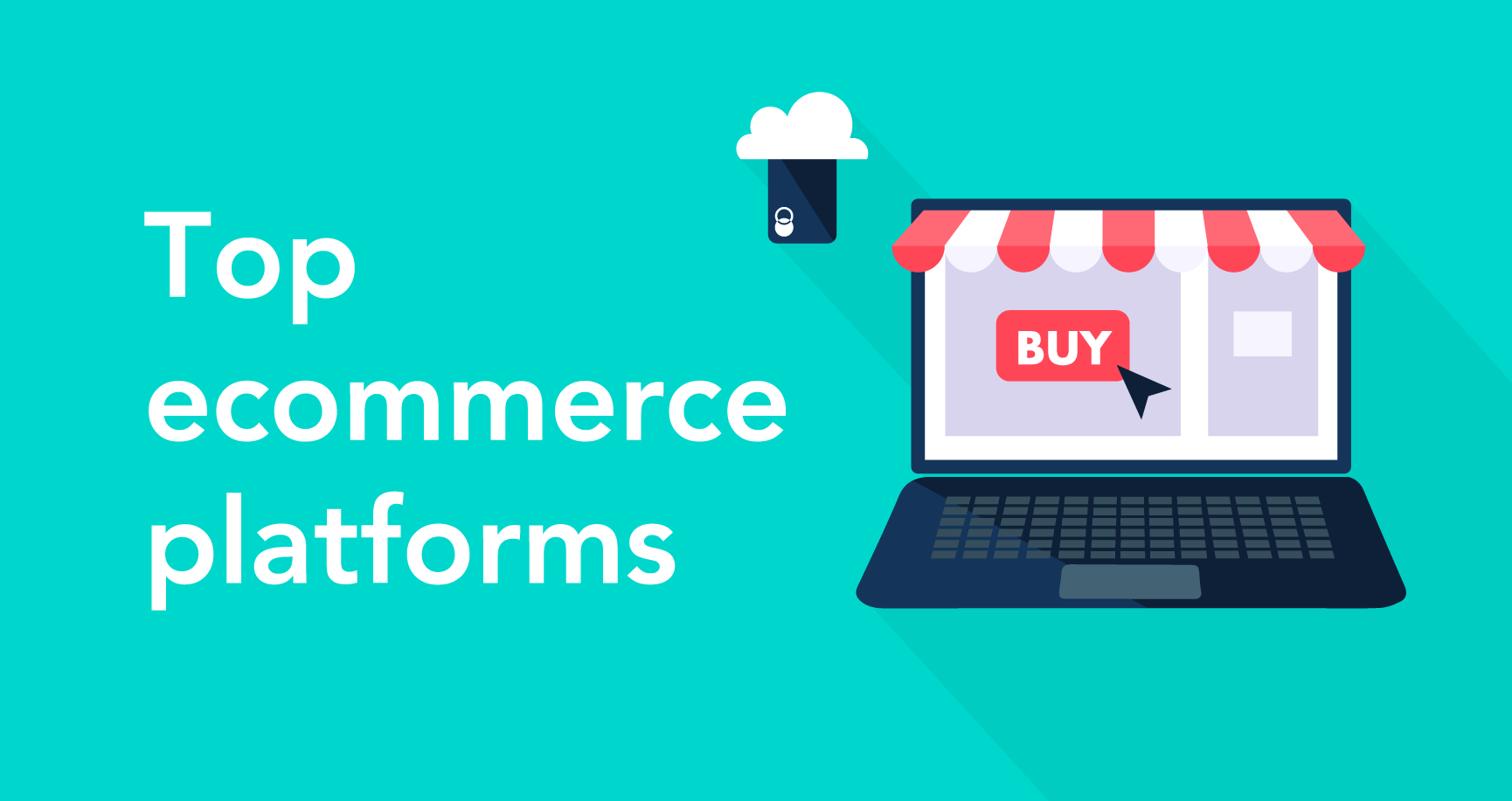Top self hosted ecommerce platforms in 2020
by Anna Kane , 5 years ago

The self-host eCommerce platform- a potentially cheaper, but definitely more customizable, more flexible, and more transparent solution if you’re looking to get your own online market up and running.
As it is expected in any trade-related domain, strategies vary, unexpected trends occur, predictions and expected outcomes are, well, just that, predictions, so things obviously aren’t going to be set in stone most of time, although platform owners seem to sometimes forget that and get stuck in their ways. The point I’m making is that what may seem a purely technical matter (after all, more bandwidth, more storage space, better server hardware, all this factors should equate into a an overall superior, more reliable service, right?) proves to be, when you step back and take a more, let’s say, holistic approach to the phenomenon, one of the many moving parts that directly affect customer experience, your brand identity, your marketing style and ultimately, your core values as a vendor. I’m of course alluding to the standard, often regarded as more reliable alternative, the hosted eCommerce platform. Designed as a Software-as-a-Service application, the hosted counterpart may sound quite attractive at first, with its promise of a shiny, out-of-the-box package, that is well maintained and consistent in its functionality. The problem with out-of-the-box is that it may actually keep you inside the box: this type of standardized package, corporate and intrusive in its implementation, may ensure that you’ll never break away from the pack and establish a unique, exciting brand identity for your business.
It’s easy to get overwhelmed in the ever-rising sea of options, so here are a few staples of self-hosting to consider:
WooCommerce– it may not be a standalone platform, but if you are into WordPress, it’s probably the best option out there. Flexible, customizable, powered by a numerous and equally dedicated community. The developers pride themselves on being an all-remote company, that grew from “from three founders in Norway, the United Kingdom, and South Africa to more than 150 team members in 32 countries.” They have stated their mission very clearly: “WooCommerce is committed to democratizing commerce and putting you in control of your own livelihood. Our core platform is free and open-source, empowering anyone to sell anything, anywhere.” Their extension store ensures great modularity, enabling you to scale and customize according to your needs.
Magento – perfect for larger-scale businesses, but still usable for smaller projects. It’s a very robust system, designed with accessibility in mind up to a point. Beyond that, the expertise of a developer is needed to fully take advantage of its many built-in features, for example its very powerful SEO tools, and to ensure that best practices are being implemented. If you’re leaning more towards the hosted alternative, Magento also got you covered: “Magento successfully integrates digital and physical shopping experiences, delighting customers. In addition to its flagship open source commerce platform, Magento boasts a strong portfolio of cloud-based omnichannel solutions including in-store, retail associate, and order management technologies.” In the end, it’s up to you to decide
PrestaShop – “an efficient and innovative e-commerce solution with all the features you need to create an online store and grow your business”. Created by a passionate team of Parisians, this service specializes in online retailing. They have helped many successful brands bring they products ever closer to their customers. They are backed up by a strong community, complemented by multiple branches of top specialists and contributors. Carrefour, K-WAY and Veja are some of the big names among their most loyal collaborators. So, if your looking to bring your products online, PrestaShop might be your go to platform.
OpenCart – ideal for start-ups and smaller enterprises, OpenCart was designed with accessibility in mind first and foremost. A bit older in the business, OpenCart stayed relevant throughout the years due to its ease of use and focus on global trading, provided by tools such as an exhaustive admin dashboard. Managing multiple stores from this interface is one of its key features, ensuring that your able to maximize your reach.
I just barely scratched the surface, as there remain many more options to be explored. However, any of these platforms is a great place to start, depending on your needs, expectations and most importantly, how do you want to present yourself to your customers.
Register and post a comment
You may also be interested in

PHP on steroids? Swoole introduction and benchmarks
What is Swoole? Swoole is an open-source C extension for PHP that enables true event-driven, async programming for PHP via its coroutines implement...
Mitigating and securing hacked Wordpress sites
As you may know already, Wordpress is one of the most common solution for rapidly building small to medium websites, offering powerful customization c...
VAshdk Sial
Self-hosted eCommerce platforms offer flexibility and control, much like how Mod APKs enhance gaming experiences. For a better Subway Surfers experience, Download Now and enjoy unlimited features!
Munir Kharal
Subway Surfers Mod APK is a modified version of the popular endless runner game Subway Surfers. In this version, players get access to premium features that are usually locked or require in-game purchases in the official release. The mod APK often includes enhancements such as unlimited coins, unlocked characters, and access to all hoverboards and outfits. Players enjoy this version because it removes the grind and allows for a more customizable and unrestricted gaming experience. However, it’s important to be cautious when downloading modded APKs, as they can pose security risks or violate the game’s terms of service. Always use trusted source like https://surfergeek.com
Tommy Shawn
Tommy Shawn
Just finished the UCAT – such a tough exam. Next up: the IELTS. Planning to apply toUCL and LSE if all goes well.
Tommy Shawn
emily nick
The baju kebaya remains a timeless piece, and when styled with a kurung songket flair, it turns heads effortlessly. Ideal for baju raya or even weddings, this blend of structured and flowing fabrics reflects both tradition and trend. For Muslimah fashion lovers, this is a look that never fails.
lan lan
Working with a top-tier AI Agency has helped us improve productivity through AI Automation. Automation Management allows us to focus on strategic tasks while AI Agents handle the repetitive ones. Any Automation Agency worth its salt should offer this kind of real-time business support.
Hill climb hillclimbracingmodapk
If you're a fan of racing games and love the thrill of unlocking everything without waiting, you should check out this amazing <a href="https://hillclimbracingmod.pro/">HCR Mod APK</a> It gives you unlimited coins and fuel, letting you enjoy all vehicles and levels with ease. This mod is perfect for Android users looking for fun without limits. Download the latest version now directly from hillclimbracingmod.pro and experience the difference in gameplay today.
Hill climb hillclimbracingmodapk
Looking for a way to make Hill Climb Racing even more exciting? The HCR Mod APK lets you access all vehicles, unlimited coins, and endless fuel. Whether you’re climbing steep hills or racing through caves, this mod makes gameplay smoother and more fun. Visit hillclimbracingmod.pro to download the latest working version for free and take your racing adventure to the next level instantly.
sens blocks
Learn how to in fish Stardew Valley APK and upgrade your fishing rod for the best results!
Mubashir hussain
Great article! If anyone’s into racing games, Rally Fury Mod APK unlimited tokenis my current favorite. I downloaded it from rallyfurrymodapk.pro and it works like a charm.”
Ahsan malana
What I love about Block Blast Mod APK is the unlimited boosts and no ads. It turns a good puzzle game into a great one.
Micheal Yousaf
Great roundup of self-hosted ecommerce platforms! I've been exploring a few of these options for managing downloadable digital products. I'm particularly interested in how they handle file delivery and bandwidth, especially for large files like GTA 8 for pc game setups. Anyone here tried integrating them for distributing software or highly compressed game for pc files?
Oliver james
The website thekaijuno8.com is a dedicated online platform for theKaiju no 8 Manga, offering the full series in high-quality English. It features easy navigation to access all chapters—from the first through the latest—paired with crisp visuals and a seamless reading experience. Fans can follow Kafka Hibino’s transformation into a kaiju and his quest to join the Defense Force while maintaining his secret, all packaged within a streamlined and accessible interface designed for the Kaiju no 8 Manga community.
Mary Richard
A great point on the benefits of self-hosted platforms. For those exploring the top options in 2020 like Magento or WooCommerce, the level of customization is indeed the biggest draw. You have complete control to modify and extend your store's functionality to meet any specific need, much like applying a Subway Surfers Speed Hack to your development process to build and adapt your market at your own pace.
Marianne Powers
Terms gree
Self-hosted eCommerce platforms give owners full control over how their store functions, offering customization without outside limitations. Subway Surfers Mod APK provides a similar freedom by unlocking full characters, boards, and coins from the start. The core gameplay remains the same running, dodging, and collecting only the access barriers are removed. Both cases focus on flexibility and full feature availability, while placing responsibility on the user to manage their setup safely and appropriately.
prominently specifically
Using self-hosted eCommerce platforms gives you full control over your store, and Xender APKworks the same way for file sharing. You get speed, flexibility, and freedom, but it’s important to use both responsibly to get the best experience.
prominently specifically
Using self-hosted eCommerce platforms gives you full control over your store, and Xender APKworks the same way for file sharing. You get speed, flexibility, and freedom, but it’s important to use both responsibly to get the best experience.
prominently specifically
Using self-hosted eCommerce platforms gives you full control over your store, and Xender APKworks the same way for file sharing. You get speed, flexibility, and freedom, but it’s important to use both responsibly to get the best experience.
nodovi alexida
Remini enhances your photos with the same sense of freedom and power. Similarly, Subway Surfers offers players a fast, dynamic, and customizable gaming experience. Whether you’re improving image quality with Remini or navigating high-speed runs in Subway Surfers, both tools elevate user experience by combining performance, creativity, and convenience.
Onais onais
This is a helpful roundup. I like how you’ve compared different ecommerce platforms in a simple way, especially for people who are just starting out and trying to choose the right option. Posts like this make decision-making much easier without getting too technical. I also came across some useful information <a href="https://subwaysurferapkzone.com">here</a> while researching online tools.
Onais onais
This is a helpful roundup. I like how you’ve compared different ecommerce platforms in a simple way, especially for people who are just starting out and trying to choose the right option. Posts like this make decision-making much easier without getting too technical. I also came across some useful information here while researching online tools.https://subwaysurferapkzone.com/
Onais onais
This is a helpful roundup. I like how you’ve compared different ecommerce platforms in a simple way, especially for people who are just starting out and trying to choose the right option. Posts like this make decision-making much easier without getting too technical. I also came across some useful information here while researching online tools.
jackson
Great overview! Self-hosted platforms really give you the freedom to create a unique online store, from design to functionality. Choosing the right one depends on your goals—WooCommerce for flexibility, Magento for scalability, PrestaShop for retail focus, and OpenCart for simplicity. Kind of like hack shadow fight 3 vô hạn tiền max level—you pick your style, weapons, and strategy, and then master it to stand out from the competition!